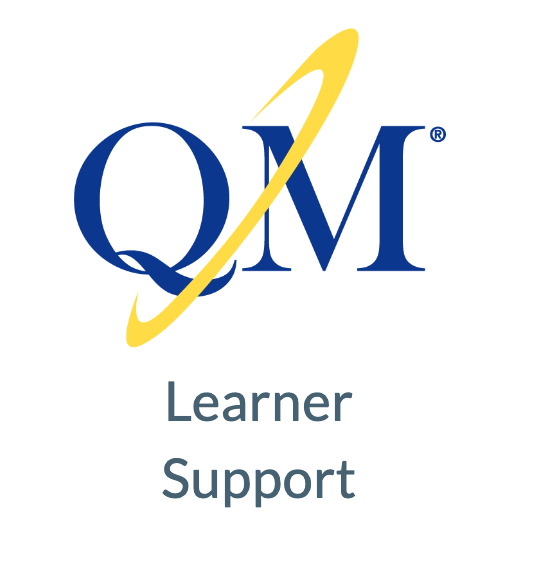One perspective on Quality Matters course certifications
We embraced Quality Matters (QM) as a framework for continuous improvement of online and blended courses just over four years ago. To get a faculty perspective I reached out to Gary Copus, professor emeritus, and asked him to share any highlights, benefits or challenges experienced as part of certifying three UAF Justice courses: Introduction to Justice (JUST 110), Research Methods (JUST 222), and Ethics and Justice (JUST 300). This tip provides his answers and a few paths you might take to make use of Quality Matters.
History
UAF has 28 QM-certified courses so far. These courses come from a variety of subjects including accounting, atmospheric sciences, business administration, biology, communications, justice, math, music and psychology. See the full list of UAF’s QM-certified courses.
Benefits
There are many QM workshops to take including Designing Your Online Course, Addressing Accessibility and Usability, and Connecting Learning Objectives and Assessments. QM-certified facilitators within the UA system offer some of these workshops online and face-to-face, while the majority are available through Quality Matters. Each of the workshops has a different focus. You don’t have to start with certifying a course. Copus says, “In a nutshell, meeting the requirements of QM forces an instructor to focus on what are the goals and objectives of a class, how to accomplish those goals, and how to evaluate whether the student mastered them. QM integrates course content.” If you’re curious about QM professional development, fill out this short form.
What insights might you discover by signing up for a free Quality Matters account and digging through their collection of article resources? They have over 1,000 studies curated in their research library.
Challenges
Some items could easily be considered a challenge and a benefit. QM requires instructors to think about how they will evaluate assignments. Copus writes, “Just asking a student ‘What do you think about the Criminal Justice Process?’ isn’t enough. QM requires actions to be clearly stated, which can be challenging. These statements provide the instructor with a basis to evaluate.” For example, Copus rewrote the assignment to say “Give a road map of the steps of the Criminal Justice Process and identify what you consider to be key concerns at each point.” According to Copus, the benefit is “the instructor and the student know what is expected and elements (key points and concerns) can be evaluated.”
Copus has taught Introduction to Justice, Research Methods, and Ethics and Justice for many years. He feels “attaining QM certification for each of the three has been a tremendous asset to myself and my students.”
Opportunities
UAF CTL is assisting several faculty to prepare for Quality Matters course certifications. You can get started by doing a self-check on your online or blended course, participate in a workshop or attend training. Complete this short form to get started.
Watch or listen to QM Success Stories for inspiration. 1. Log into your free account, 2. go to the free webinars page and 3. click on the “Reference Library” link.

Janene McMahan
Former Member of the UAF Instructional Design Team
Quality Matters Coordinator
Google Certified Educator

